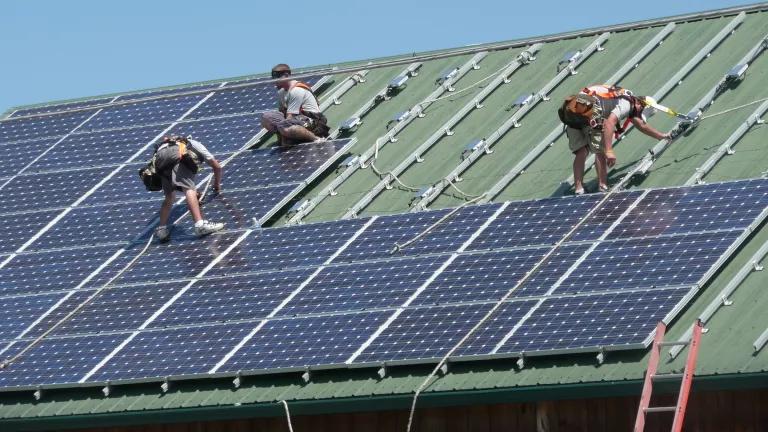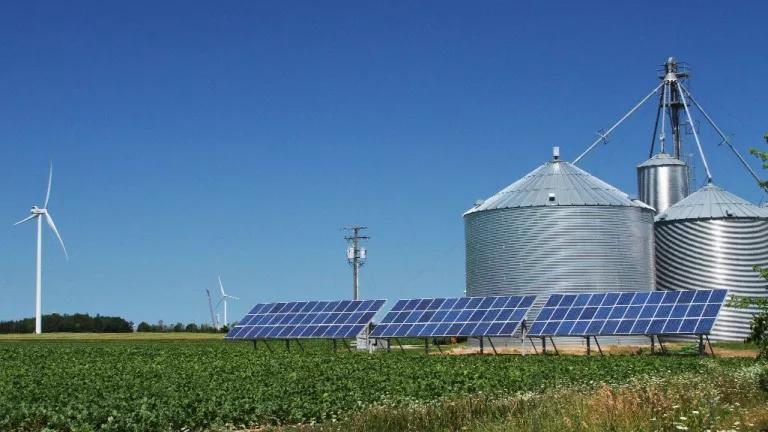Today, NRDC and Hawaiian Electric Company released the final version of a biodiesel sustainability procurement policy. It's available on our website and www.hawaiisenergyfuture.com. Ralph Cavanagh wrote a good overview of the history of the policy, its scope, and its objectives. This write up is available here. I'll summarize and quote a bit here, but I high encourage folks to read Ralph's write up and the policy itself.
It turns out that HECO is the electric industries largest user of petroleum. (We generally use very little petroleum to make electricity here in the US.) Early this year HECO came to NRDC seeking our guidance on how they could start integrate biofuels into their mix in a sustainable manner. To their credit, they realized that biofuels and particularly biodiesel can either be good or bad for the environment depending on where and how the crops used to be fuel are grown.
A draft of the policy was reviewed by a panel of academic experts and released to the public for comments. And after a number of public hearings, the comments were extensive. As a result, we made a lot of changes--fixed oversights, removed ambiguities, clarified our focus, and generally tightened things up.
From my perspective there are three critical features of the policy. First it makes clear that biofuels can not be a panacea and must be part of a comprehensive effort to promote efficient use of energy and a diverse sustainable supply. Second, it makes sustainable local production of biofuel feedstocks a priority for HECO and creates a mechanism to support the development of these feedstocks. And third, it commits HECO to only procuring palm oil that is certified by an independent third party to meet and actually exceed the standards of the Roundtable on Sustainable Palm Oil.
We spent a lot of time internally understanding the environmental impacts associated with much of the palm oil production today and debating the viability of any sustainability certification process. In particular we wrestled with the near and long-term impacts of a new demand for sustainable palm oil on the overall palm oil market. Clearly to some degree, new demand for certified palm oil will displace undifferentiated demand elsewhere into the market for palm oil, driving up prices and leading to some new undifferentiated production. However, if we cannot certify and differentiate demand, we cannot reward better practices.
Ultimately (and this point is made in the policy), certification needs to be coupled with international agreements that protect carbon and biodiversity rich ecosystems. Only by effectively creating a wall around the market for palm oil and all biomass, and simultaneously driving and pulling the market towards the best practices can we hope to achieve a completely sustainable market. In the meantime, the financial success of the better operators provide both immediate environmental improvements and the foundation for mandatory sustainability standards.
Unless algae become a reality, biodiesel has a limited ability to scale up and is unlikely to ever be economically competitive. (HECO will be supporting work on algae and other biomass derived alternatives to diesel.) Nevertheless the market for biodiesel is growing rapidly and palm oil in particular represents the cutting edge of efforts to certify the sustainability of a biofuel feedstock at least in Europe. This combined with HECO ability to make financial commitments to certification that most purchasers and their eagerness to adopt the most aggressive standards offers a unique opportunity to move the ball forward on feedstock certification and set a precedent with a US based company.
There's still a lot of work to be done monitoring the policy. If HECO decides that it can't get enough biodiesel that meets the policy or we believe that some unforeseen impact needs to be addressed, we're both committed to working together to keep the policy a live and workable example for the world.
As Ralph points out "We have set a high bar and we challenge all biodiesel users to insist on nothing less."



